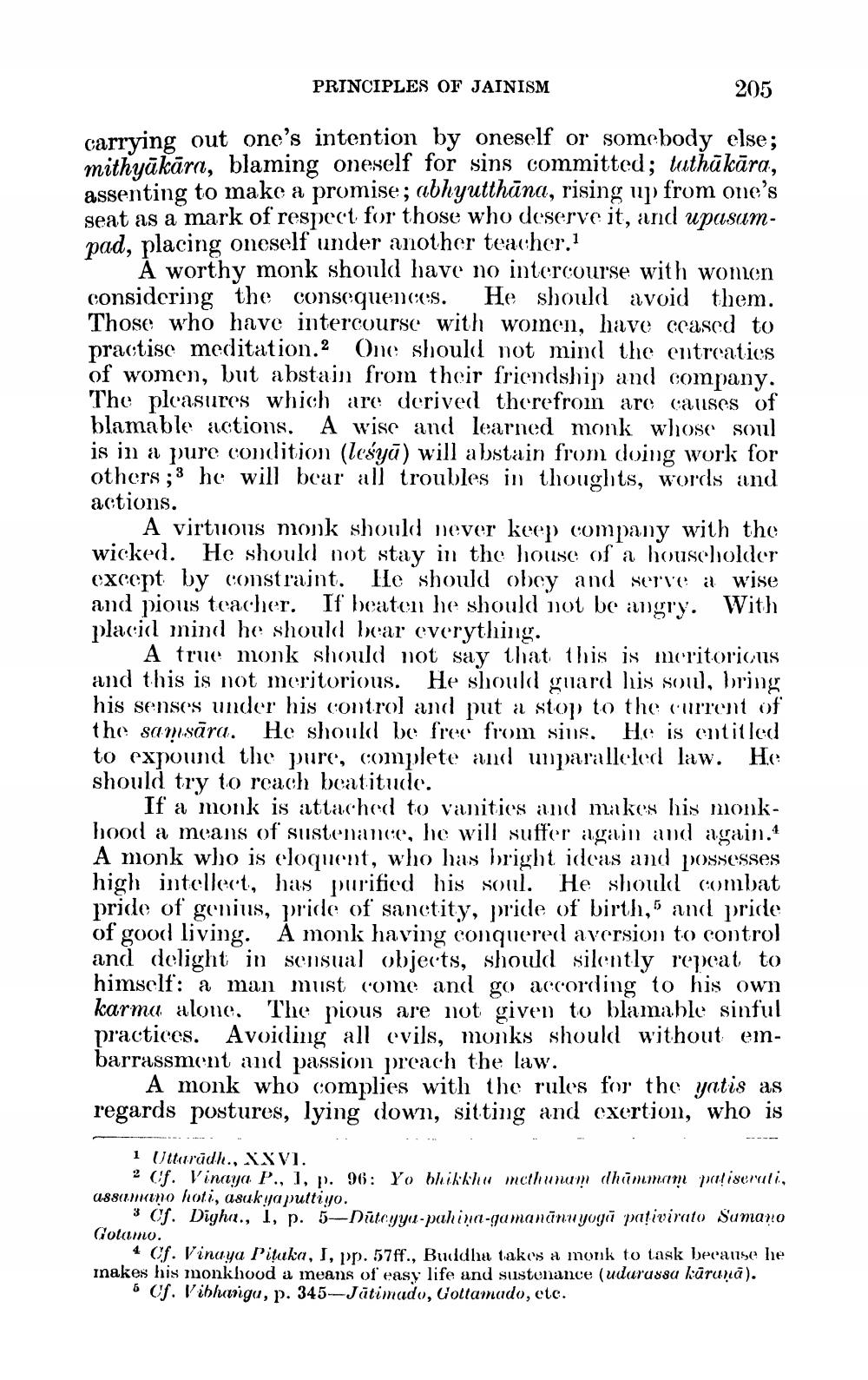________________
PRINCIPLES OF JAINISM
205
carrying out one's intention by oneself or somebody else; mithyākāra, blaming oneself for sins committed; tathākāra, assenting to make a promise; abhyutthāna, rising up from one's seat as a mark of respect for those who deserve it, and upasumpad, placing oneself under another teacher.1
A worthy monk should have no intercourse with women considering the consequences. He should avoid them. Those who have intercourse with women, have ceased to practise meditation.2 One should not mind the entreaties of women, but abstain from their friendship and company. The pleasures which are derived therefrom are causes of blamable actions. A wise and learned monk whose soul is in a pure condition (leśyā) will abstain from doing work for others; 3 he will bear all troubles in thoughts, words and actions.
A virtuous monk should never keep) company with the wicked. He should not stay in the house of a householder except by constraint. He should obey and serve it wise and pious teacher. If beaten he should not be angry. With placid mind he should bear everything.
A true monk should not say that this is meritorious and this is not meritorious. He should guard his soul, bring his senses under his control and put a stop to the current of the sam.sāra. He should be free from sius. He is entitled to expound the pure, complete and wparalleled law. He should try to reach beatitude
If a monk is attached to vanities and makes his monkhood a means of sustenance, he will suffer again and again.4 A monk who is cloquent, who has bright ideas and possesses high intellect, has purified his soul. He should combat pride of genius, pride of sanctity, pride of birth, 5 and pride of good living. A monk having conquered aversion to control and delight in sensual objects, should silently repeat to himself: a man must come and go according to his own karma alone. The pious are not given to blamable sinful practices. Avoiding all evils, monks should without embarrassment and passion preach the law.
A monk who complies with the rules for the yatis as regards postures, lying down, sitting and exertion, who is
i Uttaradh., XXVI.
2 Of. Vinaya P., 1, p. 96: Yo bhikkhu mcthunur dhammam paliseruti, assuunnino hoti, asukyaputtiyo.
3 Cf. Digha., 1, p. 5-Dūtoyyu-pahina-gamanānuyoga pațivirato Sumano Gotamo.
4 Cf. Vinaya Pitaka, I, pp. 57ff., Buddha takes a monk to task because he inakes his monkhood a means of easy life and sustenance (udarussa kūruña).
6 cf. Vibhangu, p. 345--Jätimado, Gottamado, etc.




